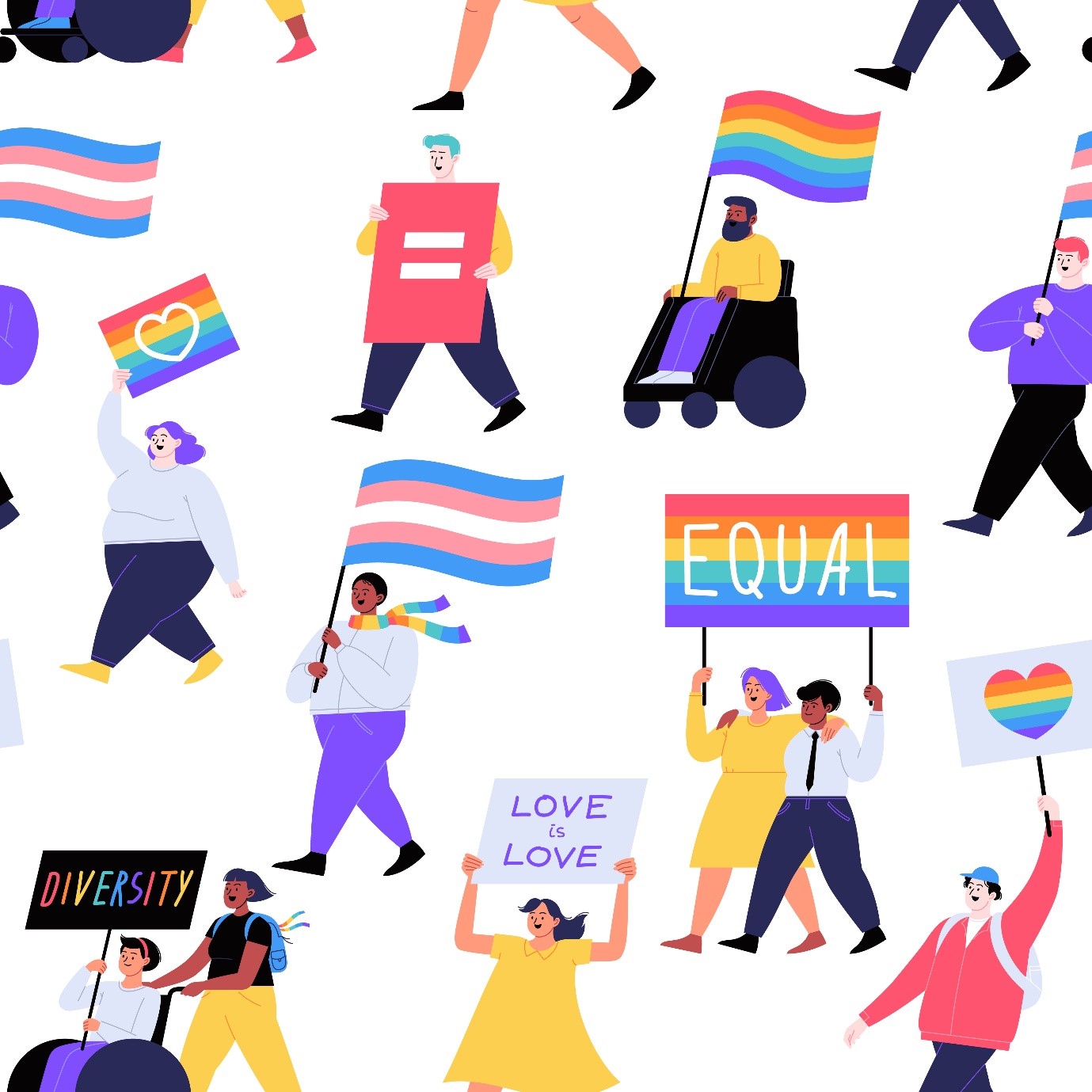
Blog post by Dr Trude Sundberg (They/Them)
What we say and how we say it impacts both individuals and communities. Here I’ll in particular look at how it impacts LGBT+ staff in higher educations.
This first part may seem like an obvious statement to make, BUT, we are often told that we should take a joke, laugh it off or even told that we are all entitled to our opinion – sometimes disguised behind the label of freedom of speech.
For those of us on the receiving end of comments pointing to stereotypes and negative associations to gender, race or abilities it is a quite different story. Comments and banter affect our overall mental health, wellbeing and when we look at the workplace, our feelings of job security. In a recent pilot study looking at the working lives of LGBT+ staff in higher education, we found high levels of indirect discrimination, mental health and chronic illness combined with high job insecurity among LGBT+ staff, and even higher among LGBT+ staff of colour (see here for key findings). It is also crucial to note here that it is not just the unsaid that forms part of indirect discrimination, but also slights, passing by and other forms of exclusions, as we will see in the examples from our study.
We are currently conducting a large, national-scale study on the working lives of LGBT+ people in the higher education sector, however, here I will use quotes and findings from our pilot study.
In our study, we found that in the increasingly neoliberal higher education sector LGBT+ staff are working in hostile environments where indirect discrimination and comments, unfortunately, are part and parcel of their work environment.
What’s the harm?
We have recently seen an increased focus on freedom of speech as a right, which rightly so, is being defended. For an example see The Observer view on the right to free expression | Observer editorial | The Guardian.
The issue that is not often spoken about is the relationship between speech – often in the form of offhand comments, banter and jokes and those who are in the groups towards which these comments are directed.
What we find is evidence of what has been written about at large within Psychology and Sociology – that indirect discrimination, stereotypes and prejudices have an effect even when not pointed directly at an individual.
We see this in reports on mental health among LGBT+ people like this from Stonewall (2018) and other reports on Stigma and Discrimination (psychiatry.org) A study conducted by a research group at Manchester University found that LGBT+ people are at greater risk of hate crime, bullying, and discrimination in health care. All of which they argue cause mental health problems and higher rates of suicide (Clayton, 2020)).
How speech and indirect discrimination affect LGBT+ staff in HE
In our study we find trends that suggest similar experiences among staff in higher education, and as in the Stonewall study we see particular issues for trans and non-binary staff and LGBT+ staff from different ethnic background.
The ways in which LGBT+ staff is affected can be divided along different dimensions. Firstly, we find that staff experience indirect discrimination, which includes resistance from colleagues to recognize gender identities as requested and use the correct pronouns of trans and non-binary colleagues as well as bullying and harassment:
“Mentioned this in previous answer regarding refusal to use the pronoun that I prefer”
“Expressions of disbelief about identities”
Other examples of indirect discrimination and banter, also related to ethnicity included:
“As an ECR I was regularly mistaken for another female queer colleague in the department, despite me being white and her being Asian”
“Colleagues making reference to views that trans women aren’t women, for example, and/or contesting academic research and events from a trans-inclusive perspective”
Secondly, some LGBT+ staff experience that their promotions and careers were impeded due to their gender and sexuality:
“I feel promotion and the ability to negotiate salary has been affected by my gender – or at least the fact that men feel entitled to negotiate and to ask for promotions quicker (and more successfully)”
As in the wider LGBT+ communities LGBT+ staff report high levels of mental health issues, and burnout was common among our respondents:
“Burnout and depression caused by overwork combined with the pressures of living for decades as a closeted bisexual”
“I experienced harassment relating to being trans and being in a lesbian relationship. I also suffered due to public issues with academics trying to spread transphobia in my institution”
Lastly, we also need to be aware of the effect of the unspoken, small movements and behaviour in social interactions that form part of bullying and exclusion. Examples from one non-binary colleague’s working life include;
“(…) not being invited, repeatedly, to social events where most other colleagues are invited”
“(…) a colleague not saying hello in a meeting, another walking in a ring to avoid me”
What to do about the harm of speech, banter and comments?
How we speak about others matters and impacts both individuals and communities, we see this both in terms of ethnicity and race and here in relation to LGBT+ people in higher education. We need to create spaces where we can speak freely without increasing harm to individuals and particular groups in societies. To do that we need to find ways of working together and to find common grounds across groups – and to reflect on what we say where and to whom in our communities, work break rooms and meetings.
We are currently carrying out a UK wide study on the working lives of LGBT+ staff in Higher education, if you are interested in taking part you can fill in our survey and find more information about our project and the qualitative part of our study click here